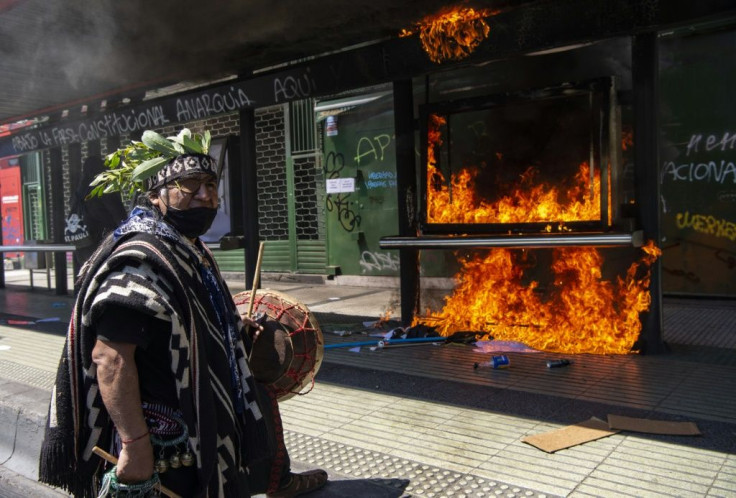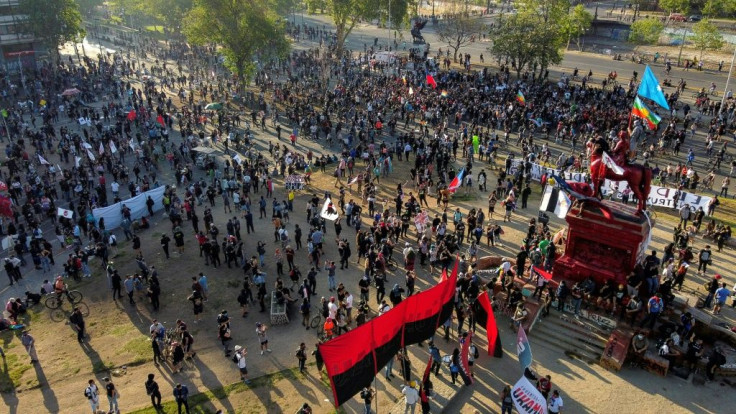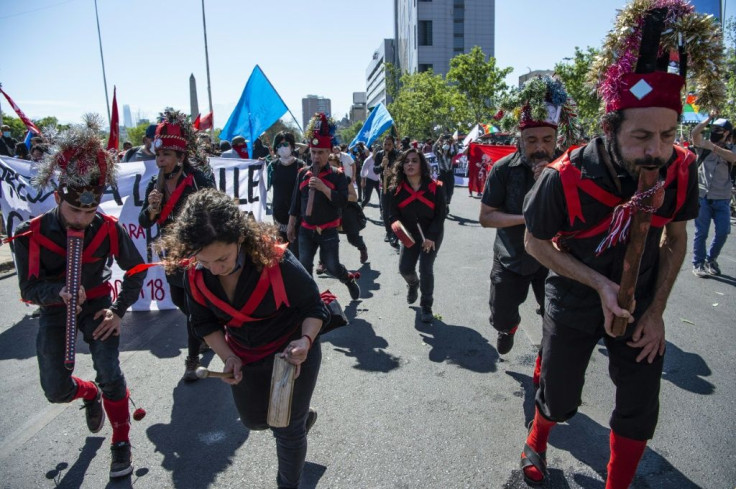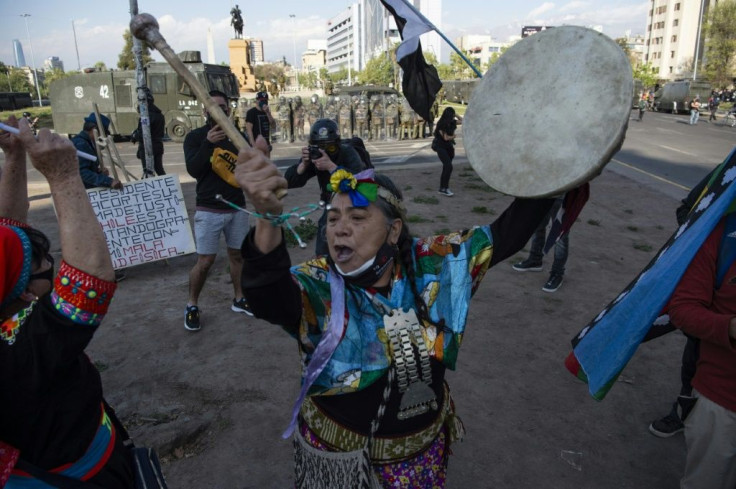Mapuche People Divided Over Benefits Of Chile Referendum
As millions of Chileans have rallied over the last year against the government and for greater equality, the flag of the Mapuche indigenous people has often fluttered overhead.
The group makes up seven percent of the 18 million population but is far poorer on the whole, and its people are demanding greater autonomy, a recognition of their culture and the restitution of ancestral lands they consider to have been stolen.
But with Chileans due to vote Sunday on whether to reform the dictatorship-era constitution, there are stark divisions among the Mapuche over how to achieve their aims.
Before the Spanish arrived in 1541, the Mapuche -- or "people of the earth" in the Mapudungun language -- controlled a territory that stretched 500 kilometers south of central Chile's Biobio River.

Following centuries of conflict with the Spanish conquerors and then the Chilean government, that land has been reduced to just five percent of its former expanse.
The Mapuche struggle has at times descended into violence, with some of the most radical indigenous elements resorting to arson attacks against logging companies, churches and homes.
The government says Mapuche-related violence has led to hundreds of firebomb attacks among several thousand acts of violence in the last decade.
Should voters choose to change the constitution, the Mapuche, Aymara and Rapa Nui peoples, as well as several other tribes, are hoping for formal recognition, and perhaps even a role in writing a new Magna Carta.

While some Mapuche are behind the push for more rights through a revised charter, others believe that no legislative process is ever going to lead to land restoration.
The only way to achieve the dream of a "Mapuche Nation," say these dissenting voices, is to press on with a campaign of sabotage and violence that has already helped them recover some of the territories they claim as their birth right.

"I value (the vote) as a democratic act that hasn't happened before with respect to what type of society we want to build, but I have doubts," Mapuche leader Juan Pichun told AFP about the referendum.
"Of course they're going to recognize our language and culture but the territory will never enter (into the discussion) and the big problem is the territory."
Pichun is a Lonko, or indigenous leader, in the Temulemu community in Traigen, southern Chile.
His community and two others signed an agreement in 2011 to recover more than 6,000 acres (2,500 hectares) from the Mininco forestry company, ending a 15-year struggle marked by a violent eviction in 1998.

The agreement came after the case went to the Inter-American Court of Human Rights, which condemned the Chilean state.
Pichun says a referendum "is not the right path" for the Mapuche to regain control of their ancestral lands -- an important step in rescuing ancient traditions and spirituality.
He has joined forces with the Arauco Malleco Coordinato (CAM) group that calls for sabotage against forestry companies operating on their ancestral lands.
The government and local farmers consider CAM to be radicals or even "terrorists" responsible for hundreds of arson attacks on schools, trucks and agricultural machinery in the southern regions of Araucania and Biobio.
It has sown fear in the areas where it operates and stoked racial tension.
"We're not a group of criminals, we're not vandals -- we're a group of fighters," insists Pichun.
But other Mapuche believe the referendum will start a conversation on improving relations between different cultures to promote mutual respect -- a goal known as "interculturality" -- in Chile.
"The new constitution is just the beginning of the process of debating interculturality," Mapuche historian Fernando Pairican, of the University of Santiago, told AFP.
He said he understands the suspicions of some indigenous communities but believes the constitution discussion genuinely offers an opportunity for more equality.
He acknowledged however a "stage of uncertainty that could work against the Mapuche movement."
Lawyer Salvador Millaleo, who specializes in indigenous affairs, is among those Chileans who see a "pretty clear alignment" between the hopes of the Mapuche people and the wish for a new constitution.
"Being outside the constitutional process is a rather limited position. Most indigenous organizations have folded" and joined the process, said Millaleo, also a professor at the University of Chile.
What indigenous people hope for "is not to build a different state, but to have another form of coexistence where there is no domination by one part of Chile but equal treatment," he added.
However, even if Chileans vote on Sunday to change the constitution, there's no certainty that indigenous people will find a seat reserved for them at the re-writing table.
© Copyright AFP 2024. All rights reserved.



















